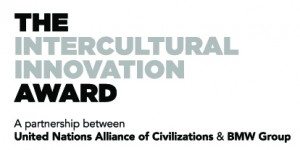This article was originally published by All Together Now’s Managing Director in Online Opinion
The recent protest in Sydney by a small number of Muslims has provided another opportunity for social commentators to examine the pros and cons of multiculturalism in Australia.
It quickly became clear during the days following the recent Sydney protests that a small group of Muslims perpetrated the violent behaviour seen on 15 September. This lead some commentators to conclude that Australia has lost its unique path to successful multiculturalism.
The recent focus on multiculturalism has provided our society with an opportunity to clarify some assumptions about what type of behaviour should be acceptable. The underlying assumption within this dialogue is that newcomers are not observing Australian values. This leads us to question what values are supposedly not being observed, and who decides what those values should be and how they should be upheld.
One case in point is the Editorial in last Saturday’s Sydney Morning Herald. One could take from this article that Australia’s political leaders need to be firmer in articulating what Australian values are, and by doing so they would help to create a more culturally tolerant nation.
Our political leaders certainly have a role to play in reminding us of our shared values, but they aren’t solely responsible. Rather, each Australian shares this responsibility. In fact, new migrants are likely to be familiar with the Australian Values Statement, having signed it before receiving their visa.
Among the values in the Statement are the notion of freedom, including freedom of religion, the respect of our democracy and egalitarianism, and the English language as a unifying element of Australian society. This is an important starting point. However, beyond a set of specified values, Australian society relies on the ability of residents to feel a sense of community and mutual respect, to acknowledge interdependence with others and to feel part of a larger stable collective.
The response of Islamic leaders in the days following the protest on 15 September conveys that the majority of Muslims live according to these values and behaviours. They made it clear that the actions of a radical few do not represent the views or behaviour of the majority of the Islamic communities in Sydney.
Initially, few mainstream and niche media outlets chose to emphasise this fact, instead giving the impression of a deteriorating relationship between the Islamic community as a whole and other Australians. They chose to tell the story using emotive and divisive images and language rather than reporting the incident factually.
By emphasizing images of the physical violence and verbal insults perpetrated by a small number of Muslims the media have instilled a sense of indignation among some sections of the community. This in turn has resulted in a backlash by a small number of people in the white community and armed forces, which are indicative of broader damage to social cohesion in this country.
Essential Media’s poll on the protest and broader issues of racism found one third of respondents believe the protests were representative of Muslim people because they are more likely to be extremist in their views. This is clearly a prejudiced view as it implies that all Muslims behave in a specific way. This view is connected to racism because intolerance of religion often implies intolerance of culture or ethnicity, an obvious example being the genocide of Jews during World War II.
Dr Naryan Gopalksrishnan of James Cook University believes that this behaviour by the media – called infeartainment – is a way of channelling people’s stress and anxiety while also entertaining them.
Infeartainment often takes the form of easily understood stories expressed in opposites as good and evil which encourages people to think in terms of us and them. Infeartainment can lead to those wearing a turban or a hijab being targeted in public spaces as scapegoats.
In multicultural Australia, the use of infeartainment is a much greater threat to a sense of community and mutual respect and social stability than violent behaviour by small groups of people whether Muslim, Christian or otherwise. In times of crisis or doubt, it’s easy to turn to the politics of hate.
This where our political leaders and journalists certainly have a role to play in steering society away from such divisive and damaging behaviour. They have the choice whether to respond in a way that encourages constructive and informed dialogue, or in a way that is divisive and sensationalist.
Living in a multicultural society means respectful coexistence with people from diverse cultural, religious and ethnic groups. Although Australia has been doing this well for a long time, continued success requires a more balanced and informed approach to public information that moves us beyond the real and present dangers of infeartainment.


